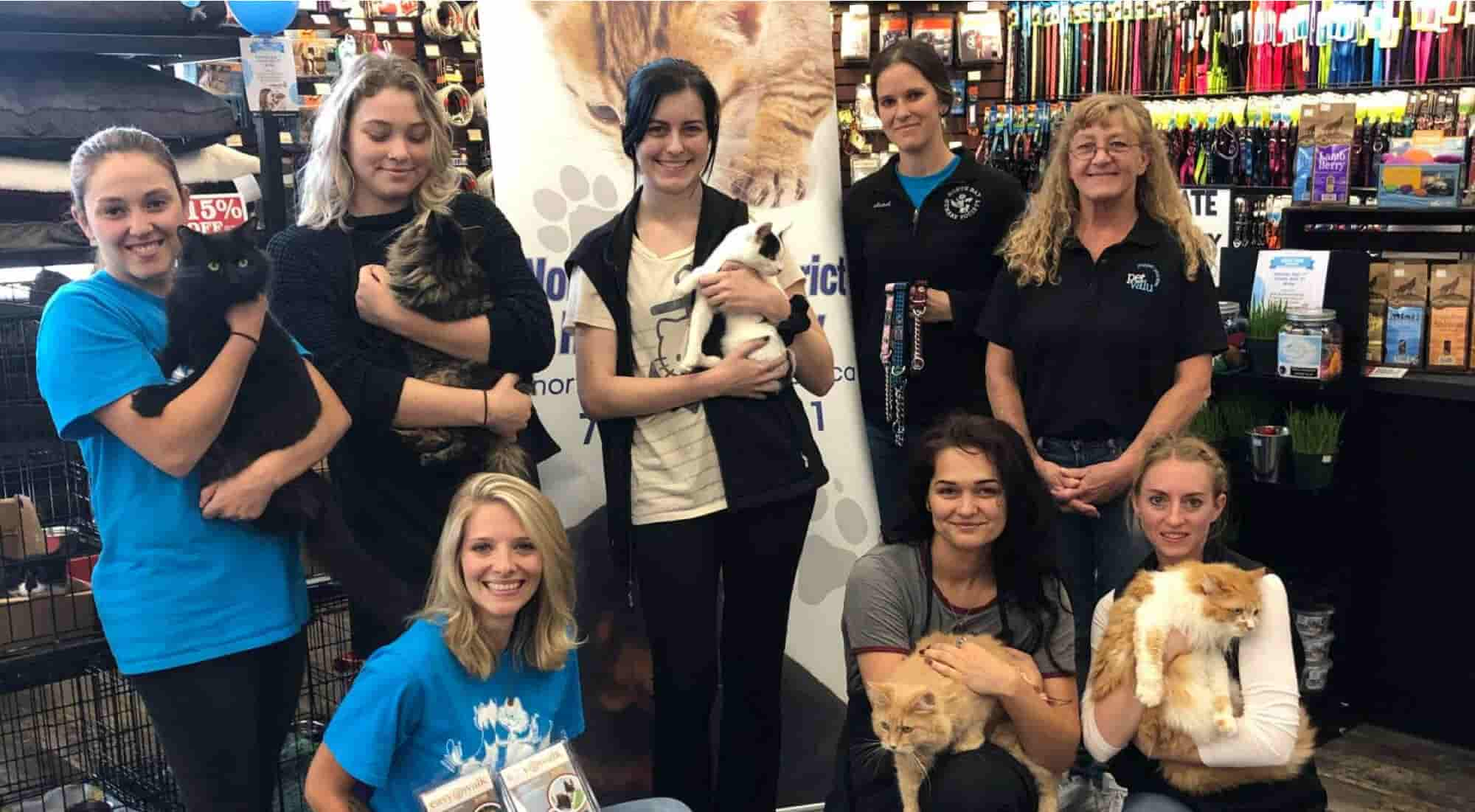You may be surprised to learn that the Humane Society, SPCA branches, and other local animal welfare organizations do far more than rescue and rehome pets in need. They’re also leading a charge to improve animal wellbeing in their communities.
“The Humane Society has evolved over the last several years to go from an organization that was investigating complaints of animal cruelty or animal neglect to making sure that those animals that come into our care get the love and the attention that they need,” says Liam Cullen, Executive Director at the North Bay and District Humane Society.
“We're not historically what we used to be. We're changing all the time. We're adapting to what’s happening, whether it's issues around veterinary care, or it's people who are maybe suffering coming out of the pandemic and from rising costs and inflation,” explains Cullen.
His branch runs a pet food bank aimed at keeping pets in their current homes, and is in the process of opening an adoption and wellness centre that will serve as both a temporary shelter for adoption-ready animals and a community hub.
“It's really responding to that community need,” he adds. “We're helping people, we're helping pets, and we're doing the best that we can to make sure that every pet that comes through our door is matched with the right family, and has the right opportunity to thrive and to do its best and live a healthy, long, loving life.”
Providing healthcare and more
The North Bay and District Humane Society provides healthcare essentials like vaccinations and spaying and neutering services for the local community, as well as regions much further north in Ontario.
“We offer the North's only high-volume, low-cost spay and neuter program,” Cullen explains. So they have customers and clients bring in pets from all over the province to take advantage of their services.
Cullen’s colleague Janet Bredin, the branch’s shelter manager, says that the past decade has seen a huge leap forward in standards of animal care. “The support of Pet Valu and the support of local organizations has helped us do better for the animals in our organization.”
Citing the spay-neuter and inter-provincial rescue programs the Humane Society runs, Bredin says, “It is absolutely impressive the difference in support that we have as an organization and an agency now to be successful. We couldn't do this on our own. Our staff has almost doubled if not more than that in the last decade.”
Bredin says the organization’s Pet Adoption and Wellness Centre that is being built even invested in a new, more welcoming look and feel.
“We're hoping to make it a lot more inviting for the public, encouraging them to see that a ‘pound’ is not a negative thing for an animal. It's a roof over the animal's head, it’s heat, comfort, a blanket and a bed. It’s food, treats, and toys.”
Strength in numbers
Cullen explains that every Humane Society is designed to serve the needs of the community that it's in, and he cites the organization’s volunteers as being a key component of their success.
“We have a registered database of about 1,500 volunteers. They help socialize cats and dogs, with bathing pets, with doing laundry, all kinds of things. We're so grateful for them. We're also envisioning the wellness centre as a community centre. So I believe this will be the first of its kind in terms of a place where pet lovers can really gather and spend time with the animals in our care and make sure that they get everything that they need.”
While locals supply their time, Pet Valu proudly invests in community animal welfare projects like this one through Companions for Change.
“With the generous help of Pet Valu,” says Cullen, “we were able to secure the grants to be able to launch this program and to make it a reality in terms of what it's going to do for our community, and not only our community but surrounding communities and the province.”














































